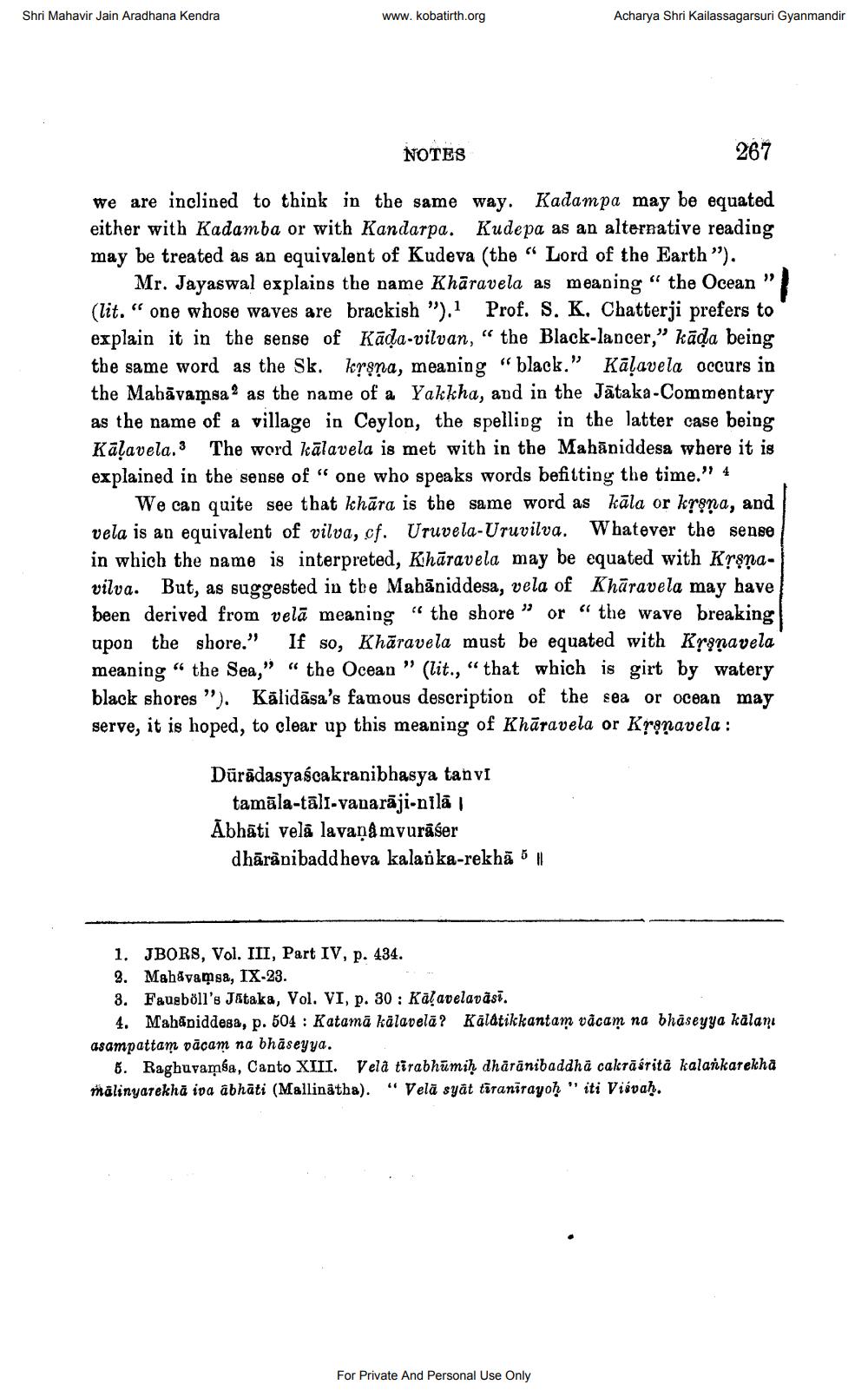________________
Shri Mahavir Jain Aradhana Kendra
www.kobatirth.org
Acharya Shri Kailassagarsuri Gyanmandir
NOTES
267
we are inclined to think in the same way. Kadampa may be equated either with Kadamba or with Kandarpa. Kudepa as an alternative reading may be treated as an equivalent of Kudeva (the “ Lord of the Earth").
Mr. Jayaswal explains the name Khāravela as meaning “ the Ocean" (lit.“ one whose waves are brackish").1 Prof. S. K, Chatterji prefers to explain it in the sense of Kāda-vilvan, “ the Black-lancer," kāda being the same word as the Sk. kršņa, meaning "black." Kāļavela occurs in the Mahāvamsa2 as the name of a Yakkha, and in the Jätaka-Commentary as the name of a village in Ceylon, the spelling in the latter case being Kalavela.3 The word kālavela is met with in the Mahāniddesa where it is explained in the sense of " one who speaks words befitting the time." 4
We can quite see that khāra is the same word as kāla or krena, and vela is an equivalent of vilva, cf. Uruvela-Uruvilva. Whatever the sense in which the name is interpreted, Khāravela may be equated with Kronavilva. But, as suggested in the Mahāniddesa, vela of Khāravela may have been derived from velā meaning " the shore ” or “the wave breaking upon the shore." If so, Khāravela must be equated with Kronavela meaning “ the Sea," “ the Ocean" (lit., “that which is girt by watery black shores"). Kālidāsa's famous description of the sea or ocean may serve, it is hoped, to clear up this meaning of Khāravela or Kronavela :
Dūrādasyaścakranibhasya tanvi
tamāla-tālı-vanarāji-nila / Abhāti vela lavaṇamyurāśer
dhāràpibadd heva kalan ka-rekhā 5 !
1. JBORS, Vol. III, Part IV, p. 434. 2. Mahavamsa, IX-23. 3. Faugböll's Jataka, Vol. VI, p. 30 : Kalavelavasi.
4. Mahápiddesa, p. 504 : Katamā kālavelā? Kālātikkantam vācam na bhāseyya kalamı asampattam vācam na bhäseyya.
8. Raghuvamsa, Canto XIII. Vela tirabhumih dharanibaddha cakrāórita kalankarekha mälinyarekha iva abhāti (Mallinatha). “Velā syåt tiranirayoh " iti Visvah.
For Private And Personal Use Only




